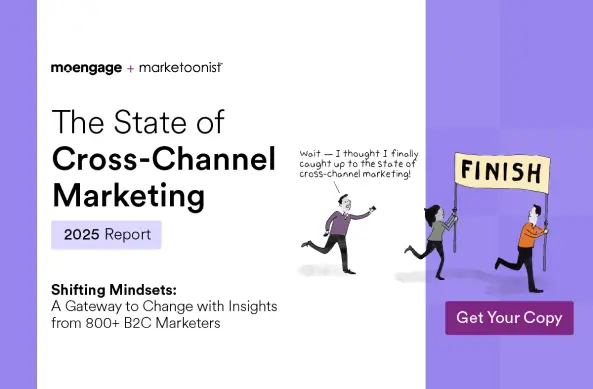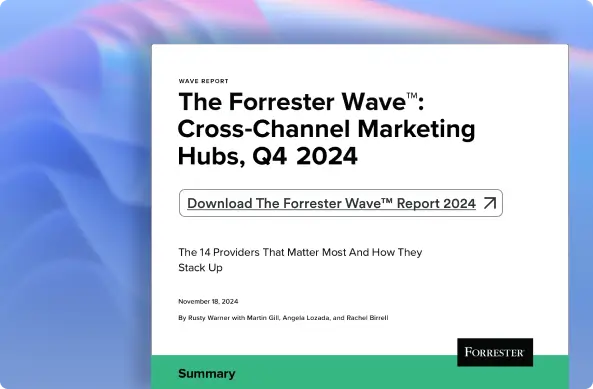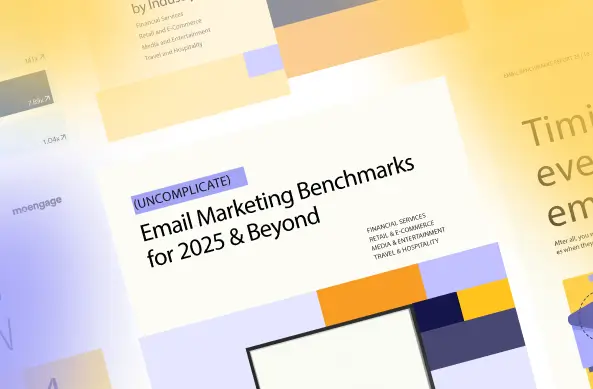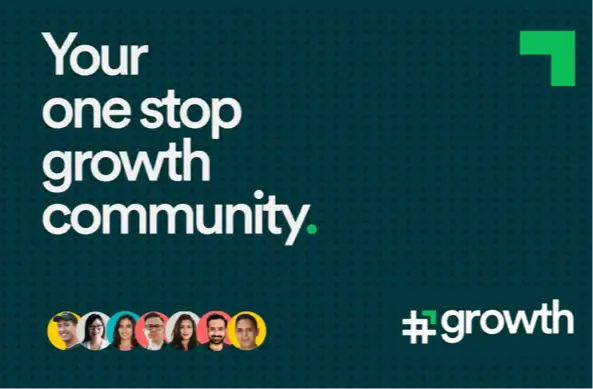Martech Readiness Report 2024 Finds Legacy Stacks Limit Agility for 65% of Retail Marketers
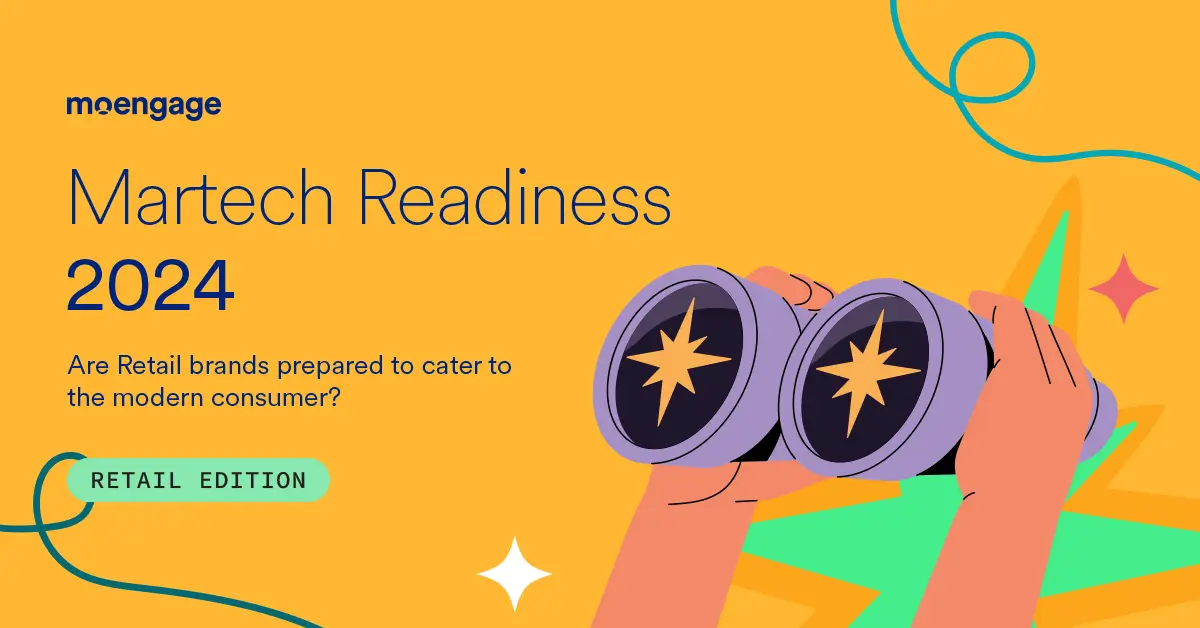
Reading Time: 7 minutes
Jeff Bezos famously wrote in his 2018 annual shareholders letter, “Today’s ‘wow’ becomes tomorrow’s ‘ordinary’ for today’s divinely discontent customers.”
Today’s customers want instant gratification, and retailers understand that well—a whopping 63.2% of retail brands we surveyed agree that agility and speed are critical to understanding and adapting to changing customer expectations.
However, not many of them can achieve this agility and speed due to legacy martech platforms.
This was our objective behind preparing the Martech Readiness Report this year. We wanted to understand how prepared retailers are to respond to market trends and customer needs and to what extent their existing martech stacks are helping them be agile and customer-centric.
About the Survey
At MoEngage, we embarked on a journey where we surveyed global leaders, decision-makers, and influencers from the Retail industry to understand how prepared they are to meet their customers’ ever-evolving expectations and demands.
The surveyed executives know that consumer behavior and expectations are rapidly evolving. They rate speed and agility as the golden tickets to help them respond effectively to changing consumer expectations.
However, the path toward effective customer engagement is filled with challenges that make them unprepared to face these changes.
This article will explore the survey’s findings, how retail brands can thrive during the ‘great transition,’ and what an agile, security-first martech stack should look like.
Let’s get started.
Our Audience
|
Roles: We interviewed individuals from mid- and senior levels in the retail industry, including C-level executives, Directors, Middle and Senior Management, and Team/ Functional Leaders. Respondents’ domains of expertise were marketing, growth, and product. |
|
Organization Size: 48.5% of respondents represent organizations with 500-1000 employees, while 51.4% represent organizations with 1001-5000 employees. |
|
Countries Included in the Survey: India, US, Canada, UK, Germany, Brazil, Mexico, Saudi Arabia, United Arab Emirates, Australia, Indonesia, and the Philippines. |
Legacy Martech Stacks Prevent Retailers from Meeting Customer Demands
Retail brands understand consumer expectations are quickly and constantly evolving…
96.8% of retail brands agree that consumer behavior, preferences, likes, and expectations are evolving rapidly.
…and only a few have the right teams to meet these expectations.
38.9% of retail brands agree that their organization is well-prepared to engage retail customers in a rapidly evolving digital world.
But their current MarTech stack is holding them back!
49.5% of retail brands have the organizational processes and workflows to react fast and adapt to customer expectations.
55.8% of retail brands use a legacy platform such as Salesforce Marketing Cloud, Adobe Experience/Campaign Manager, or Oracle Responsys to manage marketing automation and cross-channel customer engagement.
|
And 49.5% of retail brands are only partially satisfied with their current MarTech stack as it does not empower them to meet evolving consumer expectations. |
Retail brands know that speed and agility are the need of the hour…
63.2% of retail brands recognize that speed and agility are important for understanding and adapting to changing consumer expectations in 2024.

Are Retailers Prepared to Cater to Market Demands and Customer Needs?
1. Consumer expectations in 2024
96.8% of retail brands agree that consumer behavior, preferences, likes, and expectations are evolving rapidly.
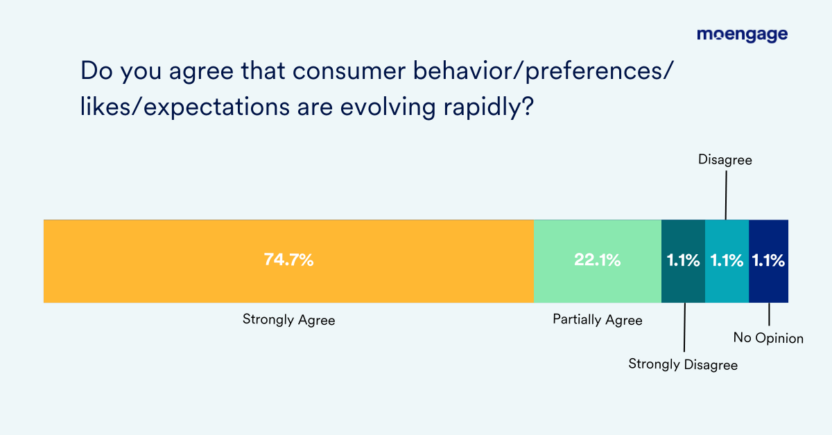
2. Organization readiness
Only 38.9% of retail brands claim they are very well prepared to adapt to changing consumer expectations in 2024, while 2% claim they are not prepared at all.
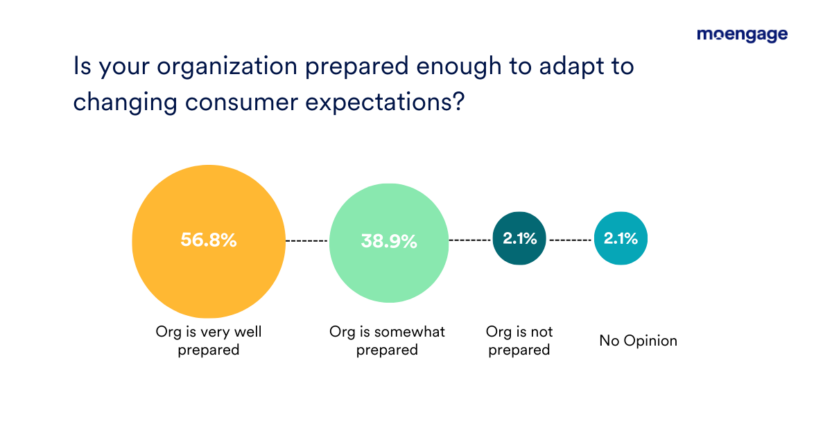
3. Importance of speed and agility
63.2% of retail brands agree that speed and agility are important to understand and adapt to changing consumer expectations in 2024.
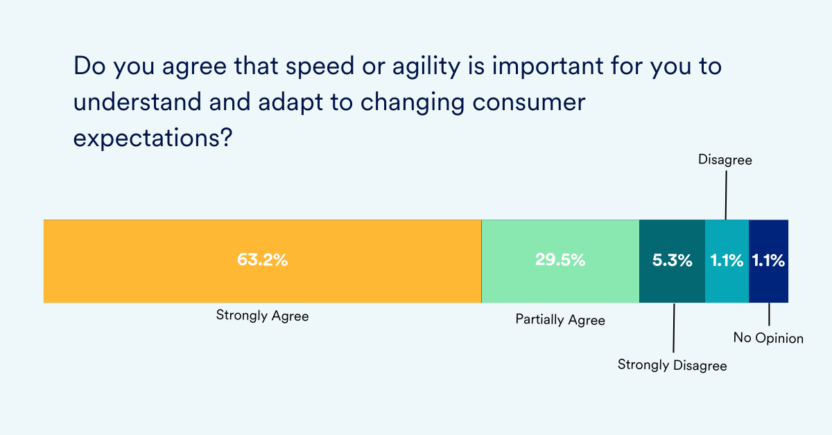
4. Support for speed and agility
Only 42.1% of management strongly agree with the statement that they have enough support to be agile and adaptable in 2024. 7.4% lack that confidence.
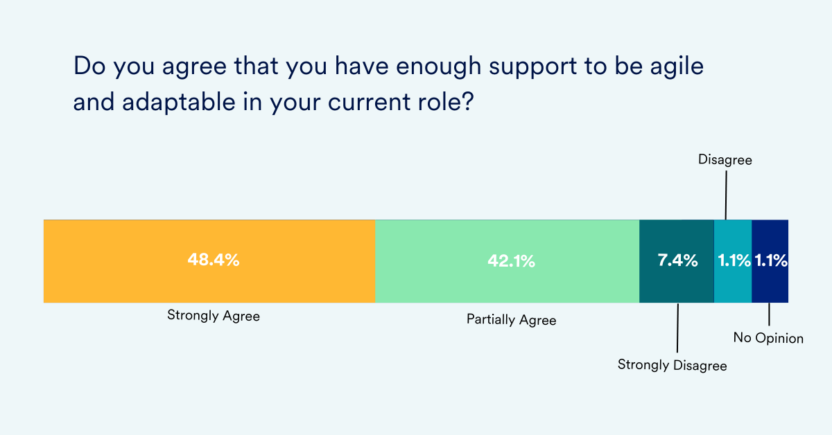
5. Organizational processes and workflows
Only 49.5% of retail brands strongly agree with the statement that they have the organizational processes and workflows that enable them to react fast and adapt quickly to evolving customer expectations. 9.5% of them lack that confidence.
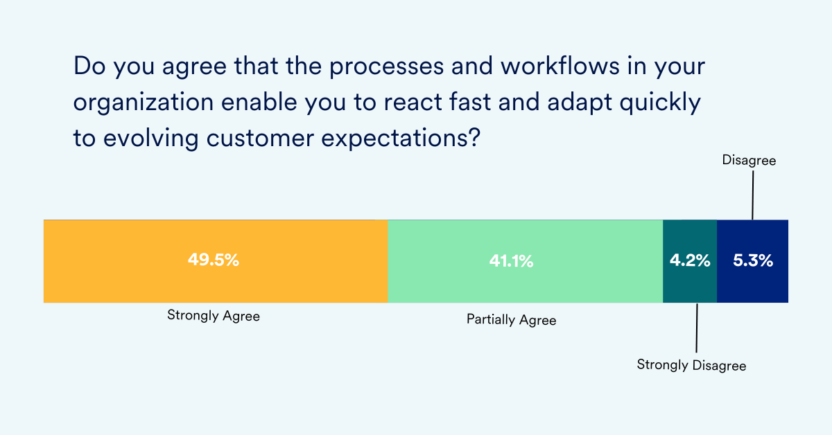
6. Current state of team skill and knowledge
Only 44.2% of retail brands believe their teams have the right skills and knowledge to engage customers in a rapidly evolving digital world.
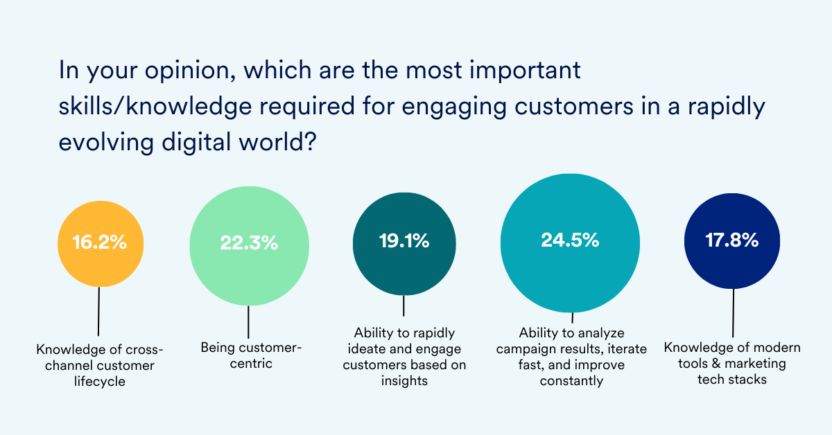
7. Important skills and knowledge to engage customers
When asked about the most critical skills needed to engage customers, retail brands replied:
- 19.1% Agility (the ability to rapidly ideate and engage customers based on insights)
- 16.2% Knowledge of cross-channel lifecycle management frameworks
- 24.5% Adaptability (the ability to analyze campaign results, iterate fast, and improve constantly)
- 22.3% Customer-Centricity (the ability to understand data and gain actionable insights about customers)
- 17.8% Modern tools and marketing tech stacks
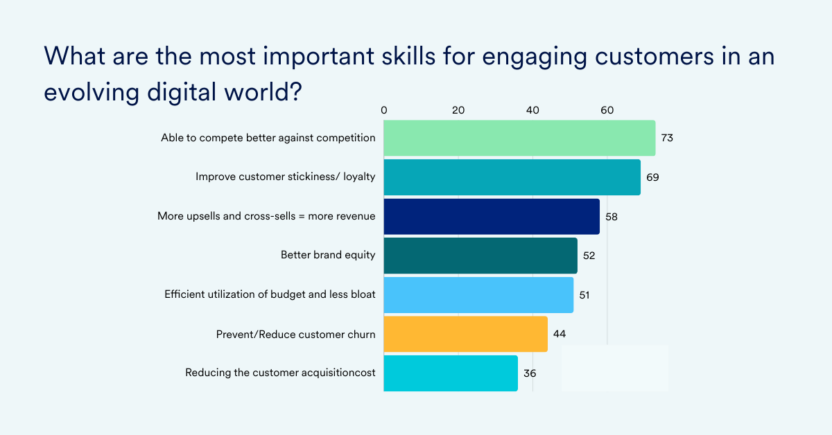
8. State of current MarTech stack in Retail
55.8% of retail brands use a legacy platform such as Salesforce Marketing Cloud, Adobe Experience/Campaign Manager, or Oracle Responsys to manage marketing automation and cross-channel customer engagement, while 36.8% use new-age marketing automation or cross-channel tools like Braze, MoEngage, and Iterable.
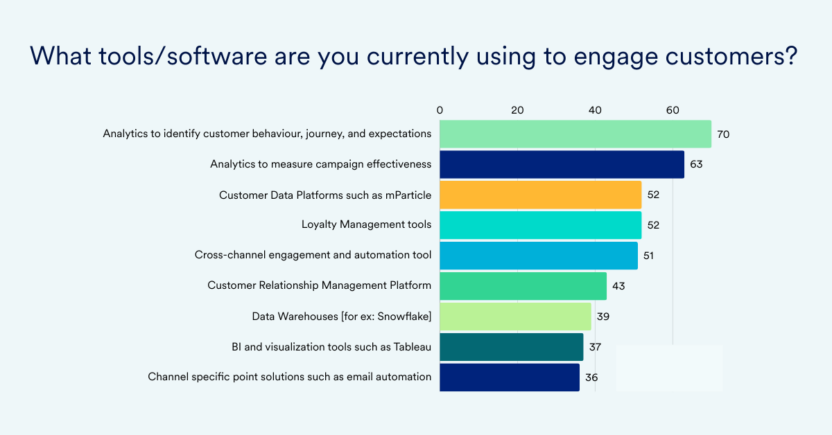
9. Campaign velocity with current MarTech stack
32.6% of retail brands take over 4 weeks to launch a cross-channel customer engagement campaign with their current MarTech stack, while 5.3% take more than 8 weeks.
Only 1.1% of retail brands go live with a new campaign in under a week.
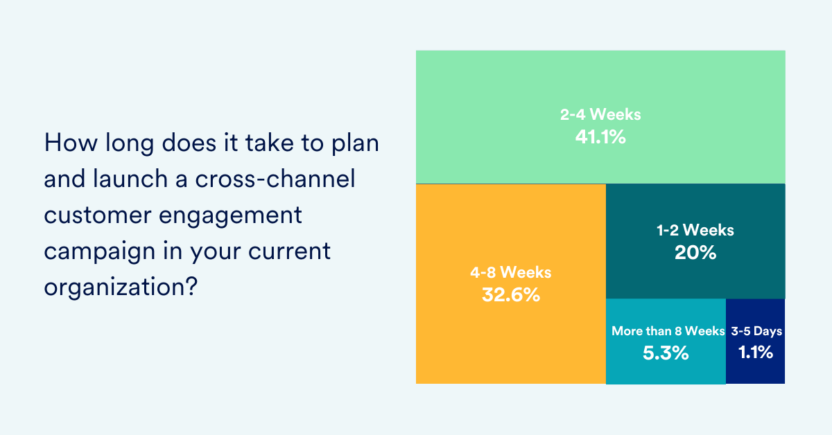
10. Time required to gather customer insights with current MarTech stack
34.7% of retail brands take more than 2 weeks to gather data and insights into customer behavior, preferences, likes, journeys, and expectations with their current MarTech stack.
Only 11.6% of retail brands take less than one week.
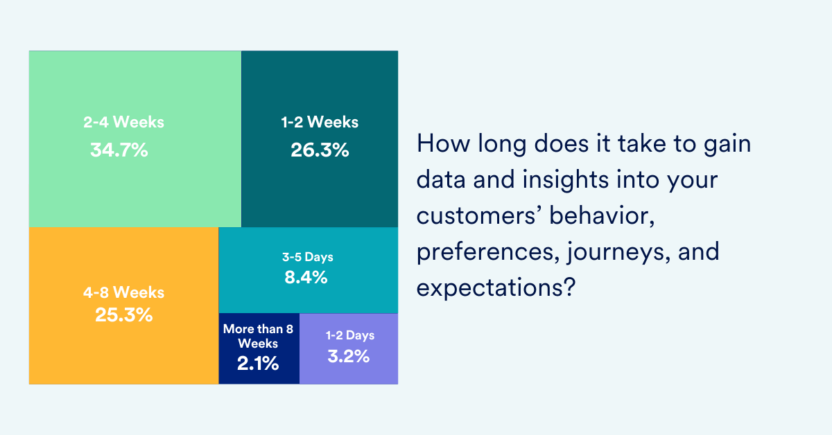
11. Time required to gather campaign insights with current MarTech stack
28.4% of retail brands take more than 2 weeks to gather data and insights about campaign performances such as reach, clicks, conversions, channel effectiveness, or attribution with their current MarTech stack.
Only 4.2% of retail brands can gather this data in a day or two.
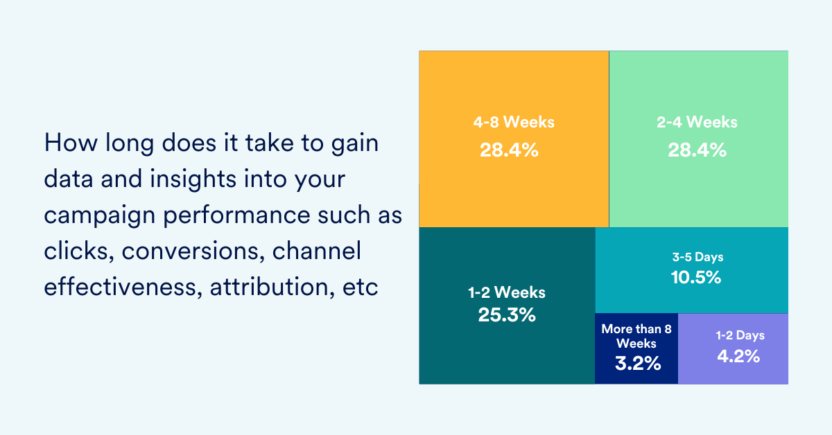
Conclusion
The retail industry must constantly meet consumer demands and provide a seamless experience to prevent churn and thrive in a hyper-competitive environment.
They acknowledge that speed and agility are important to understanding and adapting to changing consumer expectations in 2024. However, legacy platforms are slowing them down and preventing them from accessing the data they need to launch cross-channel campaigns and gather insights about customer and campaign performance. As a result, they find it hard to retain customers.
These brands can’t afford these time lags. Plus, they understand the critical features and capabilities they are looking for in their MarTech stack.
The solution?
Retail brands need a modern Customer Engagement Platform (CEP) in their MarTech stack.
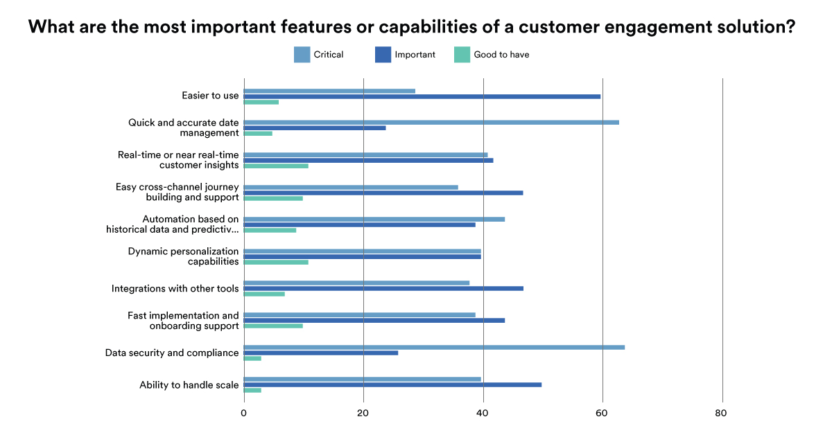
With a CEP designed for retail, these brands can combine and streamline all their channels into one unified omnichannel strategy that fast-tracks marketing campaigns, maximizes data insight, and improves customer engagement.
Hence, opting for a competitive Customer Engagement Platform like MoEngage retail brands can offer a tailored engagement to the customers. With the MoEngage CEP, marketing teams can:
- Get customer insights across behavior, journey, and campaigns
- Automate their marketing campaigns and create workflows in minutes
- Deploy Smart Triggers that prompt transactional alerts at the optimal time
- Create customer-centric experiences across multiple channels
A quick glance at how some Retail brands achieved agility and speed with MoEngage
Landmark Group: From days to 20 minutes with MoEngage
“MoEngage’s expertise in mobile and web capabilities and the ease of driving even complex use cases without any developer dependency proved to be a deal breaker for us.”
Domino’s: From 60 minutes to 5 minutes to setup email and push campaigns
“We prefer MoEngage over other CEPs used in the past because it’s user-friendly and allows us to launch personalized omnichannel campaigns at scale with ease, supported by MoEngage’s awesome support team.”
Sweatcoin: From 4 days to 20 minutes to launch multiple email campaigns
“We can’t believe it only takes us 20 minutes now, as opposed to the 4 days it used to take us to compile emails alone.”
What to Read Next?
1. Learn now what are the Top 5 Signs to Update Your MarTech Stack Now: A CTO’s Perspective.
2. Understand the importance of implementation/onboarding for a retail brand by reading 7 Factors to Consider While Implementing an Engagement Platform for Retail Brands.
3. Here’s a list of 10 Questions to Ask While Choosing a Perfect Customer Engagement Platform.
4. Looking to migrate from your current tech stack to something more popular? Read on to understand what you should opt for: Salesforce Marketing Cloud Vs MoEngage – What’s Right for Your Organization?
5. Martech Readiness Report 2024: How Ready Is Your Financial Service Brand to Meet Customer Expectations?

